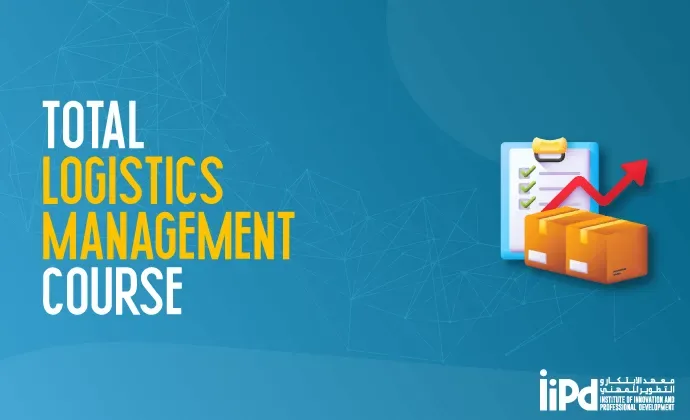
Course Details
Master International Logistics & Supply Chain Management in Riyadh
In today's globalized economy, efficient logistics and supply chain management are crucial for Riyadh businesses to thrive. IIPD Global's International Total Logistics Management course equips participants with the essential knowledge and expertise to navigate the complexities of logistics and optimize their operations.
Course Objectives:
- Develop a comprehensive understanding of logistics: Master the core concepts and latest trends in logistics, building a solid foundation for success.
- Gain insights into logistics' role in supply chain management: Discover how logistics acts as the linchpin for seamless flow of goods and information throughout your supply chain.
- Implement effective logistics management systems: Learn to leverage technology and tools to streamline logistics processes within your organization.
- Embrace a global perspective: Develop a global mindset to navigate the interconnectedness of today's logistics landscape.
- Maximize benefits of 3PL partnerships: Understand the role of third-party logistics providers and leverage their expertise for strategic advantage.
- Master reverse logistics: Explore the importance of sustainable practices and learn to efficiently manage product returns.
Course Duration:
This five-day intensive program offers participants a deep dive into the world of logistics and supply chain management.
Who Should Attend?
This course is designed for a wide range of professionals, including:
- Managers & Supervisors
- Executives & Team Leaders
- Logistics, Warehousing, & Transportation Professionals
- Production & Supply Chain Management Personnel
- Purchasing & Importation Planning Staff
Whether you're a seasoned professional or just starting , our course provides the valuable knowledge and skills needed to excel in the dynamic field of international logistics.
Course Modules
Our course covers a diverse range of modules to ensure participants gain a well-rounded understanding of logistics and supply chain management. Some key modules include:
1. Logistics and Supply Chain Overview
- Supply Chain and Logistics Management Definition
- Relation between supply chain and modern business
- Integration of supply chain management
- The importance of leveraging technology
2. Forecasting and Demand Planning
- Importance of forecasting in supply chain
- Types and methods of forecasting
- Sources of demand
- Different techniques of planning
- Strategic & tactical planning
- Planning from different supply chain perspectives
- The firm processes incoming orders
- Customer service management and its linkage with logistics processes
3. Logistics and Information Technology:
- The importance of effective and efficient utilization of information for logistics
- General types of information systems and their logistical applications
- The impact of electronic commerce on channel design
- Key differences between the logistics of e-fulfillment and the logistics of traditional fulfillment
4. Production Management
- Production organization and Engineering role
- Calculation of productivity, efficiency, utilization, and effectiveness
- Planning the production, Capacity, and Time
- Methods of production improvement.
- Quality techniques (lean, Six Sigma & TOC)
- Quality Control and Quality Assurance
- Total Quality Management
- Main production processes
- Problem-solving and Quality improvement processes in production
5. Inventory Control and Costing
- Inventory impacts in financial statements
- Inventory categories, types, levels & ways of handling
- EOQ & ABC analysis
- Inventory costs and stock-out cost
- Inventory calculation of financial valuation
- Techniques for controlling the inventory
- inventory flow patterns
6. Distribution, Warehousing and Materials Handling
- Types of warehouse Layouts
- Techniques of Materials Handling
- Warehouse Responsibilities and Jobs
- Receiving, Inspection, and Issuing processes & procedures
- Forms are used in transferring the material between warehouses
- Warehouse capacity planning and organizing
- Space utilization
- Material handling techniques and methods
- Protective Packaging and Materials Handling
- Free trade zones
7. Logistics Management
- Modes and Means of Transport
- The linkage between warehousing distribution centers and logistics
- IoT (Internet of Things) and Artificial Intelligence in Logistics
- The main logistics activities
- Freight forwarder's roles and Party logistics grades (PLs)
- The main criteria of selection transportation modes are “Land, Air and Sea”
- Maritime logistics and roles of freight consolidation and breaking bulks
- Logistics document types & importance
- Exports and Imports process
- International commercial terms (INCO terms)
- Container types & numbering
- Management of Private and public carrier
- Logistics risks and freight negotiation
- Reverse logistics process
Our course offers an immersive journey through the intricacies of logistics and supply chain management. Join us at IIPD Global to unlock your potential in this dynamic field and stay ahead in the world of logistics.








